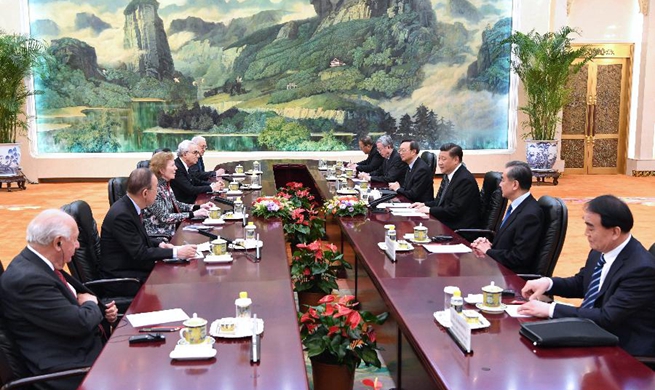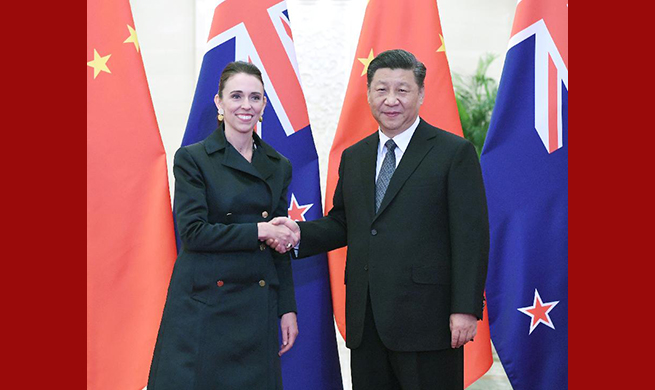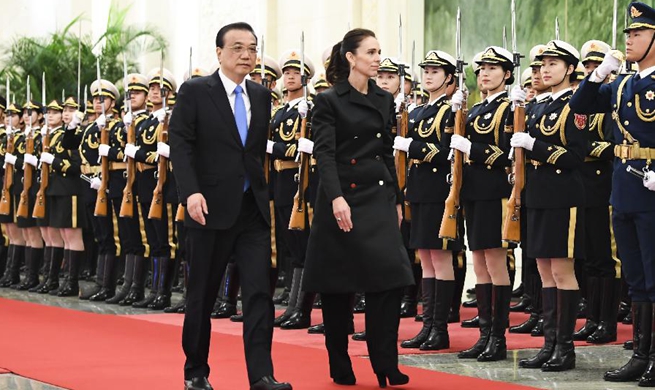OTTAWA, April 1 (Xinhua) -- The Canadian federal government begins levying its carbon tax on greenhouse gas-emitting fuels Monday in the four provinces that have refused the government's pan-Canadian climate framework measure.
The residents in the provinces of Manitoba, Ontario, Saskatchewan and New Brunswick will be paying more for gasoline and heating fuel from Monday.
The tax measure is designed to lower the country's carbon emissions so Canada can meet the reduction targets it agreed to at the Paris Climate Summit.
The federal tax is 20 Canadian dollars (about 14.97 U.S. dollars) per tonne for this year and is set to increase by 10 Canadian dollars (about 7.48 dollars) annually until it reaches 50 Canadian dollars (about 37.43 dollars) a tonne in April 2022.
The move will drive up the cost of gas, natural gas, as well as propane, butane and aviation fuel.
It is uncertain over how widespread the impact will be, how businesses will receive rebates, and whether the tax will survive court challenges underway in two of the four provinces.
The four provincial governments opposed to Prime Minister Justin Trudeau's tax plan along with opposition Conservative Party. They feared it will be economically damaging and far too punitive for consumers and small businesses.
The residents of the four provinces will be getting rebates as well on their income tax returns. The rebates start at 128 Canadian dollars (about 95.81 dollars) annually, vary between provinces and increase for people with spouses or dependents at home.
The federal government said the carbon tax is a sensible way to protect the environment and put a price on activities that pollute to discourage emissions, and give back most or all of the money through income taxes.













